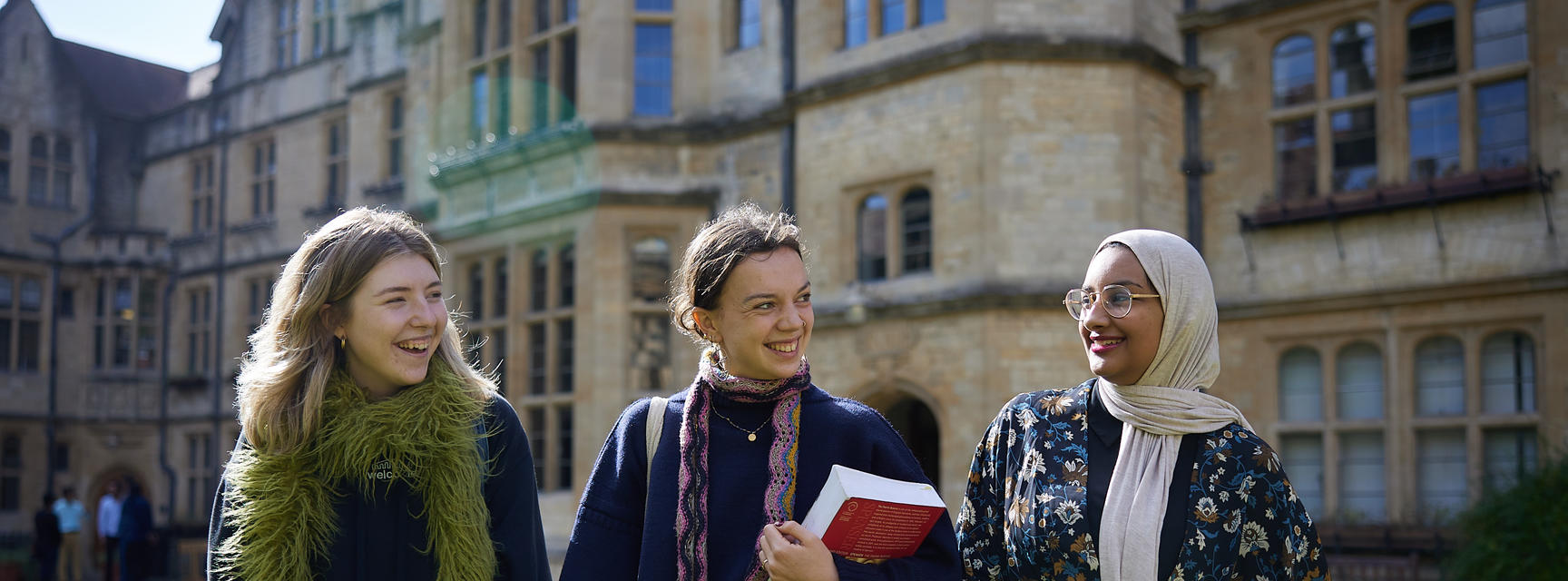-
Battels – The charges made to a member of a College for accommodation, meals, etc.
Bodleian Libraries – The collective name for the University's integrated library service
Chancellor – Elected by Convocation, the Chancellor is the ceremonial head of the University
Class – (abbrev. Classification) the level of award of a degree (e.g. 2:1 or Upper Second)
Collections – College exams taken at the start of each term on the material covered in the previous term
Collegiate University – The University of Oxford, comprising the academic divisions and departments; Gardens, Libraries and Museums (GLAM); and University Administration and Services (UAS), together with the Oxford colleges and permanent private halls
Congregation – The legislative body of the University with over 5,000 members, comprising the academic staff of the University; heads and other members of governing bodies of colleges; and senior research, computing, library and administrative staff
Council – The University’s principal executive and policy-making body, responsible for the advancement of the University's objectives, for its administration, and for the management of its finances and property
CUREC and DREC – University and Department Research Ethics Committees respectively, these terms are also used to refer to the ethics assessment forms
Degree Days – Various days throughout the year on which students may graduate
DGS – Director of Graduate Studies
Division – There are four academic divisions: Humanities; Mathematical, Physical and Life Sciences; Medical Sciences; and Social Sciences
Don – A professor, a lecturer or a Fellow
DPhil – Doctor of Philosophy; the PhD is known as the DPhil in Oxford
DTP – Doctoral Training Partnership: Oxford is part of the Grand Union DTP with Brunel and the Open University. It is funded by the ESRC and it is the means by which several of our doctoral students receive financial support. It is also facilities various training activities open to all Oxford students
EdC – Education Committee; one of the five main committees of Council, it defines and keeps under review the educational philosophy, policy, and standards of the collegiate University
Emeritus – A title held by retired professors and readers of the University
ESRC – Economic and Social Research Council, one of the UK’s seven Research Councils
Fresher – A new student
Full Term – The main teaching period at Oxford. It lasts for eight weeks and runs from Sunday of 1st Week to Saturday of 8th Week
GAO – Graduate Admissions Office, part of the central University
Gazette – The official journal of the University, published weekly in term-time, in which information on the University’s formal business and other key information must be published
GJCC – Graduate Joint Consultative Committee
Graduate – Someone who already holds a university degree; used interchangeably with postgraduate
GSC – Graduate Studies Committee
GSO – Graduate Studies Office, part of the central University
GSR – Graduate Supervision Reporting
Hilary Term – The second of the academic year’s three terms, running from January to mid-March
Long Vac – Long vacation – the name widely used for the period between the end of the Trinity Term and the beginning of the Michaelmas Term each year
Matriculation – Matriculation confers membership of the University on those students who are enrolled at the University of Oxford and following a degree-level course
Michaelmas Term – The first term of the academic year which begins in October and ends in December
NCRM – the National Centre for Research Methods maintains a UK research training courses database and offers bursaries
Oxford SU – Oxford University Student Union
PGR – Research graduate student
PGT – Taught graduate student
Principal Investigator (PI) – Senior departmental staff who lead research programmes and manage those research staff involved
Proctors – The two Proctors (Senior and Junior) have responsibilities under the statutes and regulations for aspects of student discipline, for ensuring the proper conduct of examinations and for dealing with complaints
PRS – Probationer Research Student; students working towards a DPhil must apply in the first instance for admission as a Probationer Research Student
REF – Research Excellence Framework; a series of exercises conducted nationally to assess the quality of UK research and to inform the selective distribution of public funds for research by the UK higher education funding bodies
SOLO – Oxford’s online library catalogue
SSD – Social Sciences Division
Subfusc – Formal attire worn by students and academics on formal occasions, including matriculation, examinations and graduation
TCD – Taught Courses Director
Trinity Term – The third term of the academic year, usually running from late April to late June
Vice-Chancellor – The senior officer of the University; the current VC is Professor Irene Tracey
Viva – oral exam
A full glossary of all puzzling Oxford terms can be found here.








